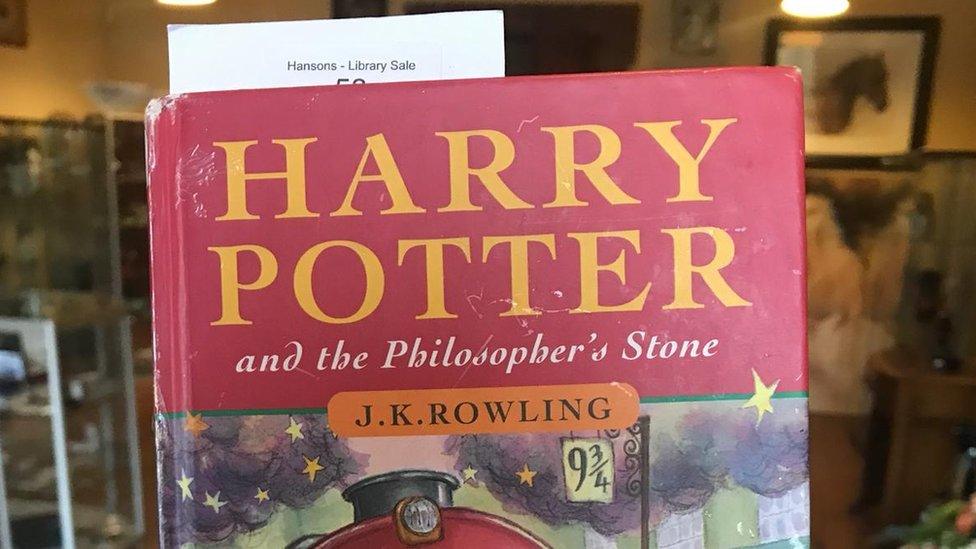Auctioneer becomes a magnet for rare Harry Potter books
- Published
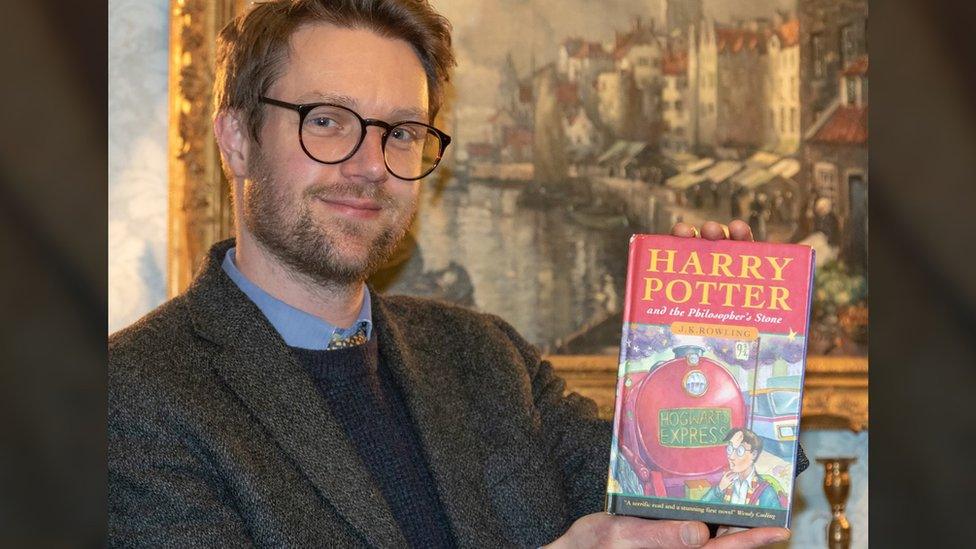
Auctioneer Jim Spencer says people have told him he looks a bit like Harry Potter
Like a store out of JK Rowling's imagination, rare artefacts brimming with magic keep turning up at the same auction house. It regularly trades in first editions of the debut Harry Potter book, fetching thousands for the seller, and offering literary history to the buyer. But how does the spell keep on being cast there?
There's an irony here. For a franchise centred around "he who must not be named", word of mouth has meant a tidy trade in Harry Potter books.
Jim Spencer, who some say has more than a passing similarity to a certain wizard, is a book specialist at Hansons Auctioneers. He's had hundreds of emails from potential sellers since the business sold a first edition of Harry Potter and the Philosopher's Stone in July 2019.
Most people, it turns out, have to be let down gently. They're not quite sitting on the small fortune that only comes with the real McCoy. But he does promise to "check every single one" for the vital hallmarks.
Derbyshire-based Hansons has sold eight first edition "Stones", with £68,000 the highest sum so far. Four were auctioned this month alone by the business which also has sales rooms in Banbury, London and Stafford.
The first they ever sold originally belonged to Staffordshire Libraries, and was discovered when Mr Spencer was asked to value a private collection in the county, into which the library copy had found its way.
He said he was "bowled over" to discover it was a genuine first edition and valued it between £20,000 and £30,000, because of its nice condition.
But leading up to the auction about a year-and-a-half ago, "it was all very quiet". Some dealers advised him the book would struggle to sell at that price. "I have never been so nervous of risking my reputation," Mr Spencer said.
But, once under the hammer, or wand, the book did indeed meet the guide price. And then the emails started. "It was absolutely crazy".
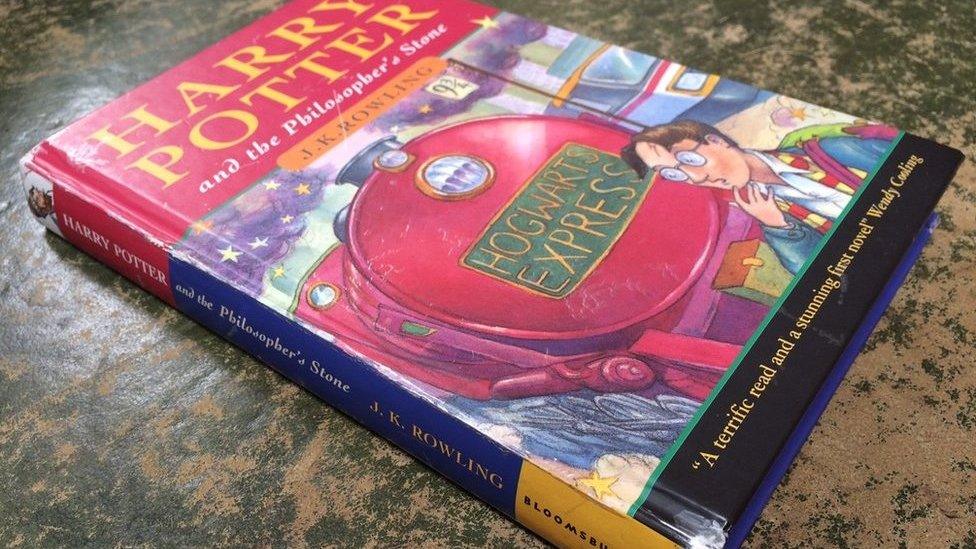
Hardbacks are among the key criteria when sourcing a first edition Philosopher's Stone
Only 500 copies of Harry Potter and the Philosopher's Stone were printed in the first run, with 300 going to libraries.
They were all hardbacks, and it's these versions of the debut novel that fetch the big bucks. It's through them the character is first introduced to the reading world, on his way to becoming an internationally-recognised literary phenomenon beloved by children and adults alike.
But hardbacks aren't the only ingredient here - there are a few other things on the checklist for a genuine, original print run, first edition.
So, before you go scurrying to a shelf or a box in the attic, other signs you might have one include the following:
A true first edition will feature the instruction "1 wand" repeated in a list Harry has. It accidentally appears twice. Take a look below...
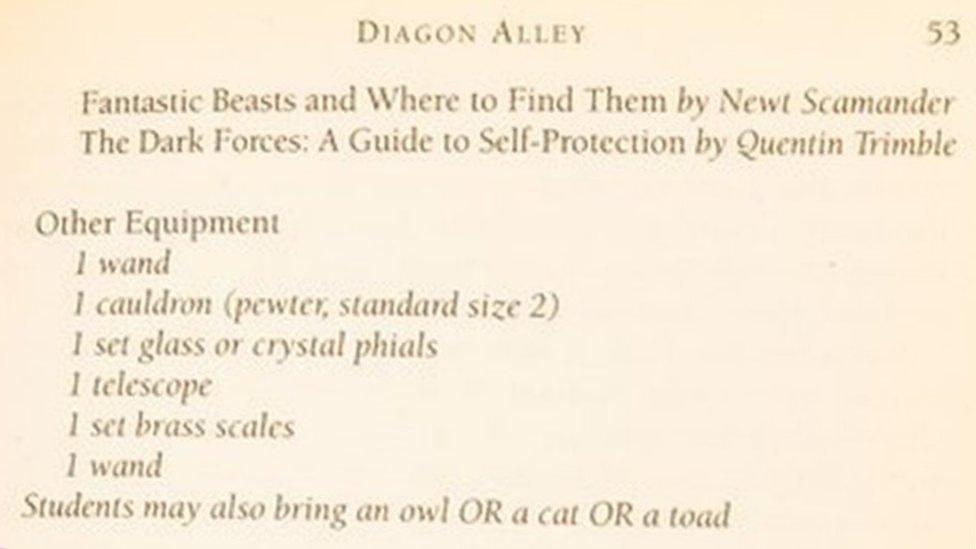
Required is "1 wand" - appearing twice
The problem is, it's also a mistake that appears in the first few printings, and even makes a comeback in some later editions.
But don't despair. There are more tests to be done.
One of the best indicators of a true first edition is the number sequence 10, 9, 8, 7, 6, 5, 4, 3, 2, 1 on the copyright page, as seen here...
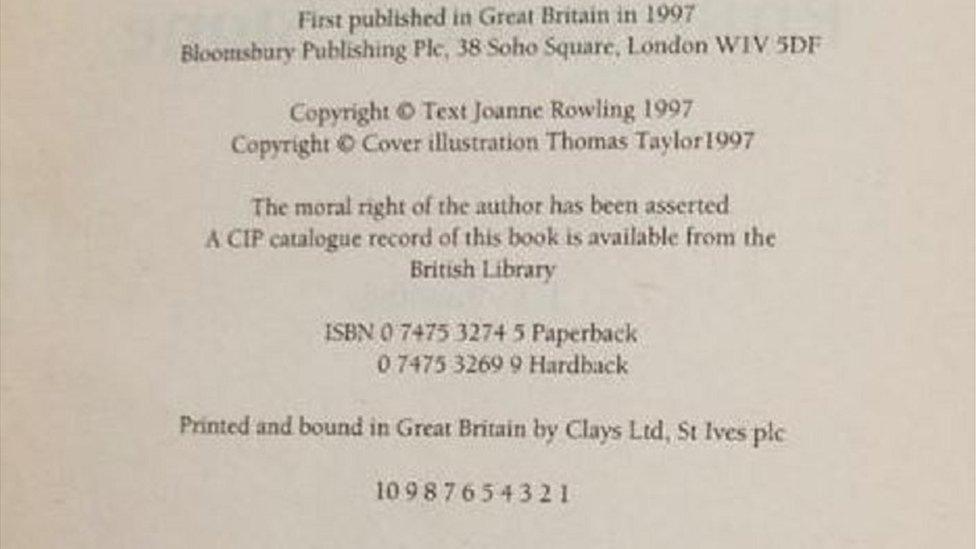
One of the best indicators of a true first edition is this numbering on the copyright page
Genuine copies, on the back cover, also have the titular word "philosopher's" misspelled. Spot the error below, along with the incorrect description of Hogwarts as a school of "wizardry and witchcraft". Any first-year Gryffindor can tell you it's actually the other way around.
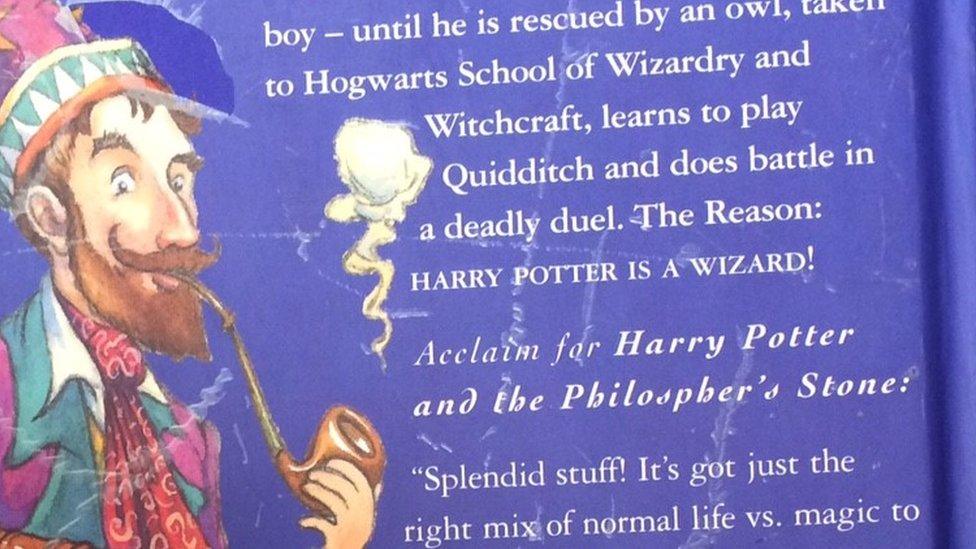
Spot the errors
Occasionally, a deliberate fake is sent to be valued.
Mr Spencer said he was once asked to inspect a book from Paris which "looked good at first", but turned out to be a first-issue paperback glued inside a fake hardback cover.
He said it would probably have fooled a lot of collectors, but the print "didn't quite look right" when held up alongside a genuine first edition.
Mr Spencer has produced this video guide, external to show what fakes can look like.

First editions under the hammer
July 2019 - A book bought for £1 by a 54-year-old office worker from Staffordshire to read on his holidays, before being put away in a cupboard, sold for £28,500.
October 2019 - A book kept safe in a locked briefcase for 20 years exceeded the guide price and sold for £46,000. It had been given to the seller's family by an aunt.
May 2020 - An edition rescued from a skip sold for £33,000. It was one of 10 Harry Potter first editions which once belonged to a school in Buckinghamshire. It was saved, along with some other Harry Potter titles, by a 65-year-old teacher who couldn't bear to see it go to landfill.
October 2020 - A Philosopher's Stone bought by a British expat in Luxembourg to help teach his children English sold for £60,000. It was posted to Hansons in a tea towel, in reference to the magical house elves of the series.
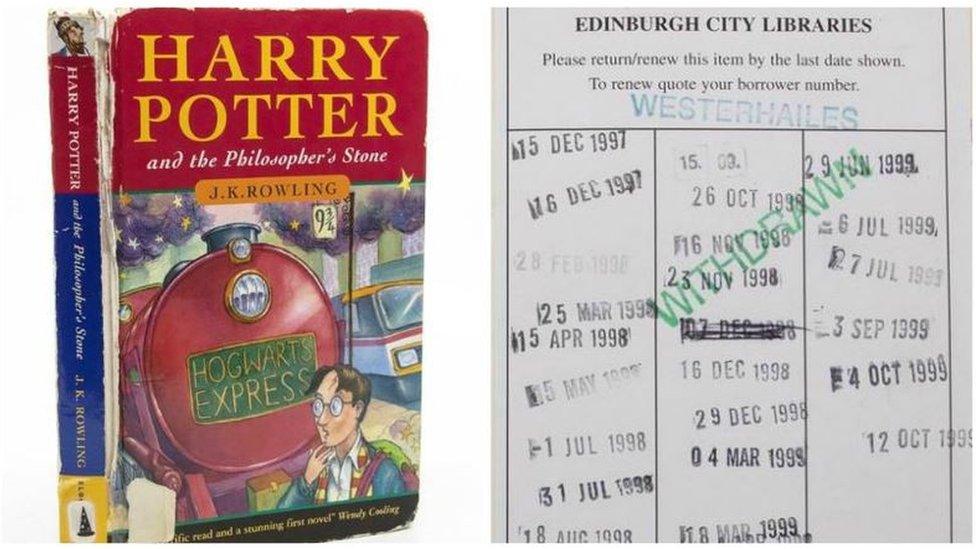
This copy had the original Edinburgh library stamps. Mr Spencer said: "It's quite magical to think they were among the first kids in the world to read Harry Potter and in the city where it was written."
December 2020 - A well-worn copy which once belonged to a library in Edinburgh, the city where JK Rowling wrote the story, sold for £19,000.
December 2020 - A book which had been one of 200 sold to private buyers in 1997 sold for £68,000.
December 2020 - Another privately-owned book, which was discovered by a Blackpool family while they were having a clear-out, sold for £50,000.
December 2020 - A badly-worn item, thought to have belonged to a library at some point, sold for £17,500.

Most of the buyers and sellers have asked to remain anonymous, but Mr Spencer suspects some new owners could be "young tech millionaires" who have a love of the novels after growing up with them.
Other books changing hands may have been bought as gifts, he said, or perhaps as investments in the hope their value rose further.
And the auctions have attracted international interest, with the £60,000 copy from Luxembourg being sold to a buyer in California.
One seller we do know about is 59-year-old Karen Rumsey from Blackpool, who discovered the book when her family helped her have a clear-out during lockdown, so she could move home.
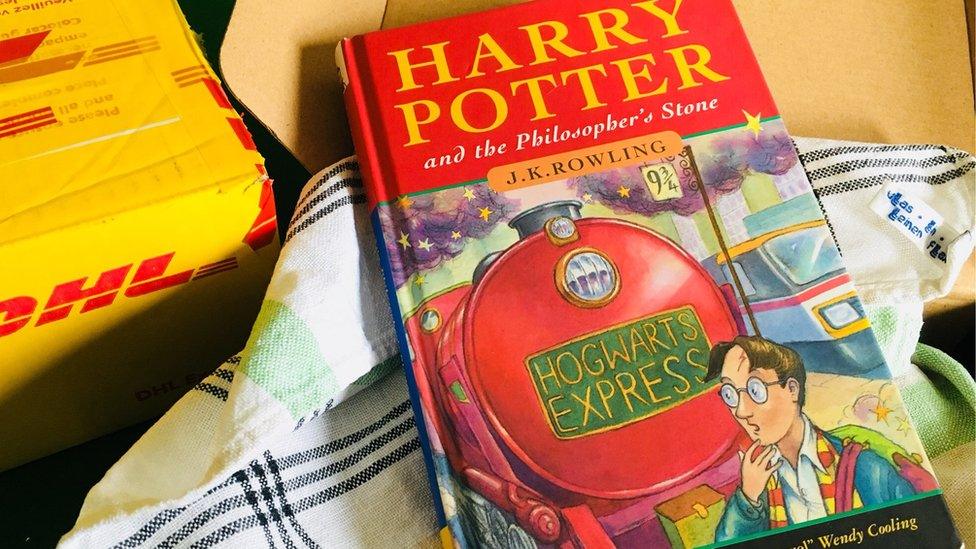
A book in a tea towel beats a bed under the stairs
Hardback first edition copies of books two and three can also be valuable.
While titles from later in the series, produced in greater numbers, are worth less unless they have the author's autograph, even unsigned copies of The Chamber of Secrets and The Prisoner of Azkaban could be worth up to £1,000, Mr Spencer said.
He didn't, though, grow up a Potter fan and said he was teased over his disinterest by book store colleagues where he used to work, after studying literature at the University of Birmingham.
"Funny how things have worked out," he said.

Follow BBC West Midlands on Facebook, external, on Twitter, external, and sign up for local news updates direct to your phone, external.
- Published3 December 2020
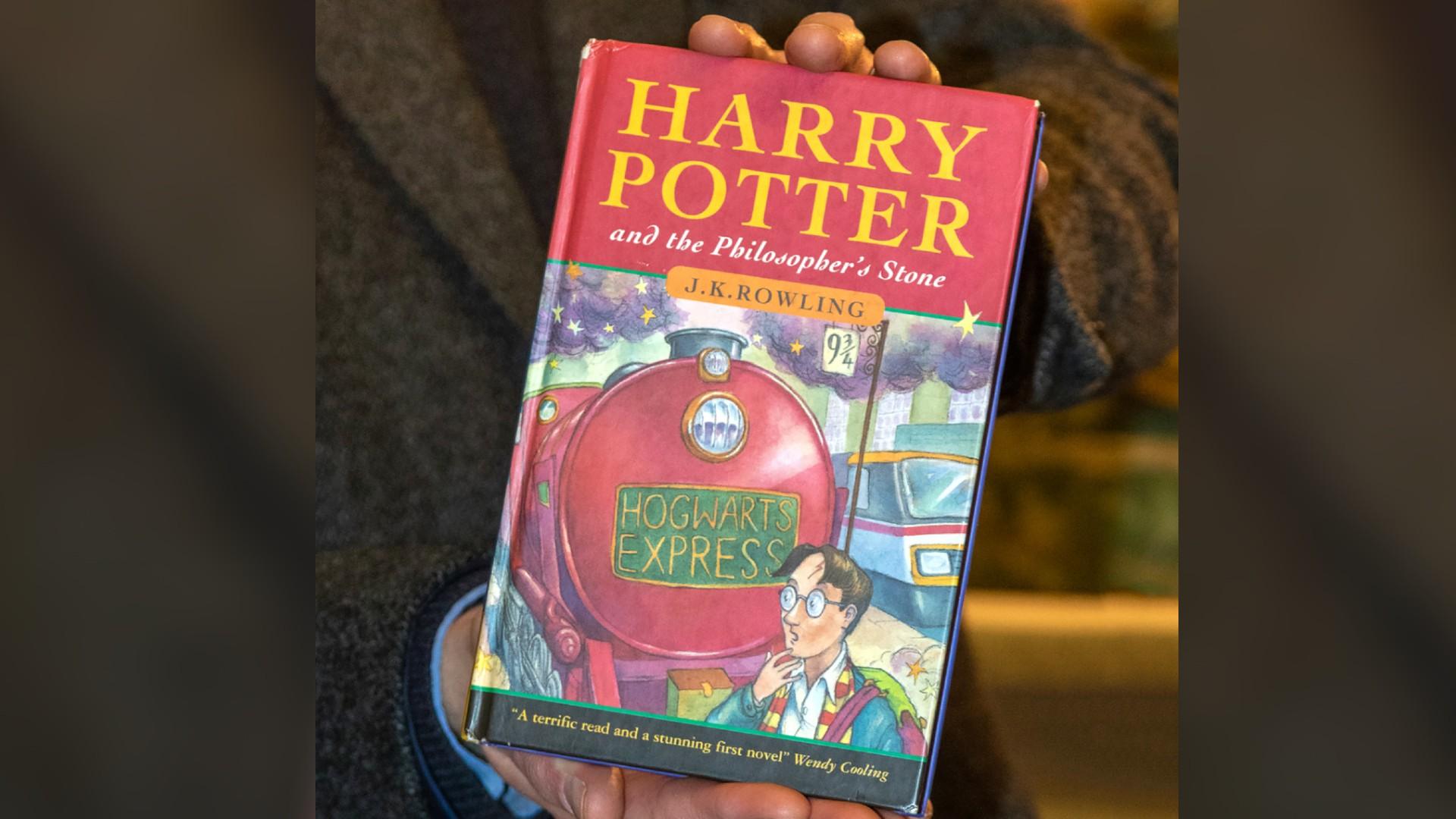
- Published22 May 2020
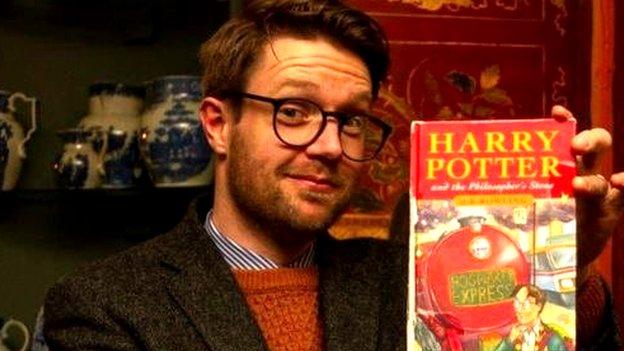
- Published13 October 2020
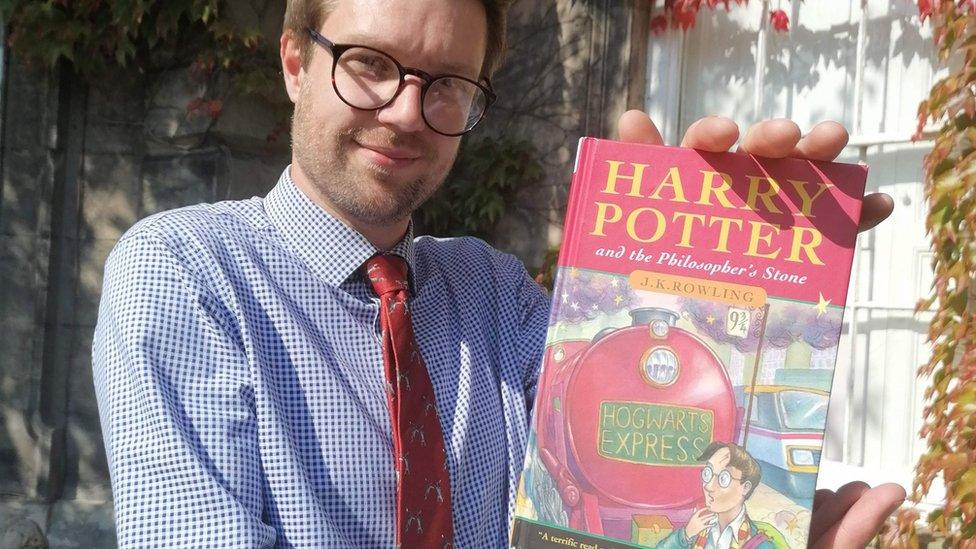
- Published10 October 2019
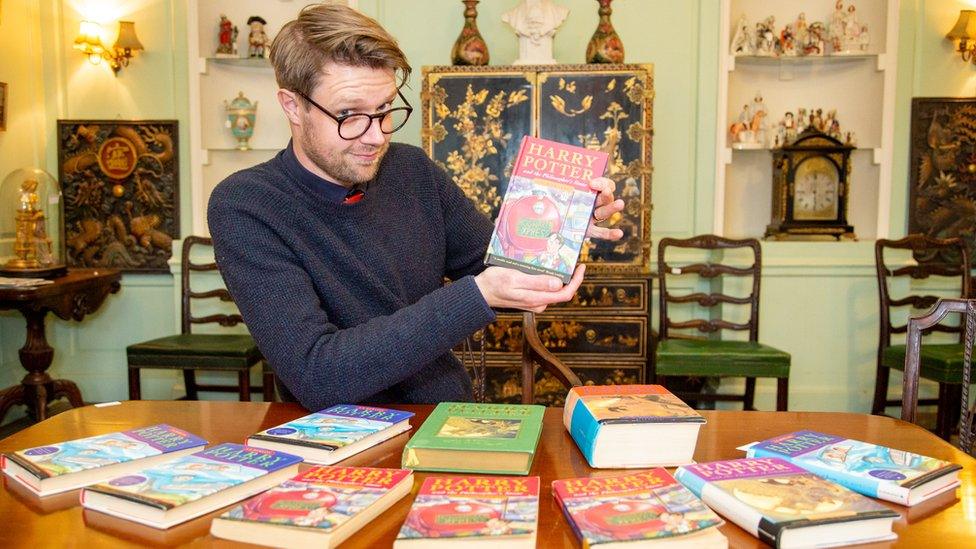
- Published12 December 2019
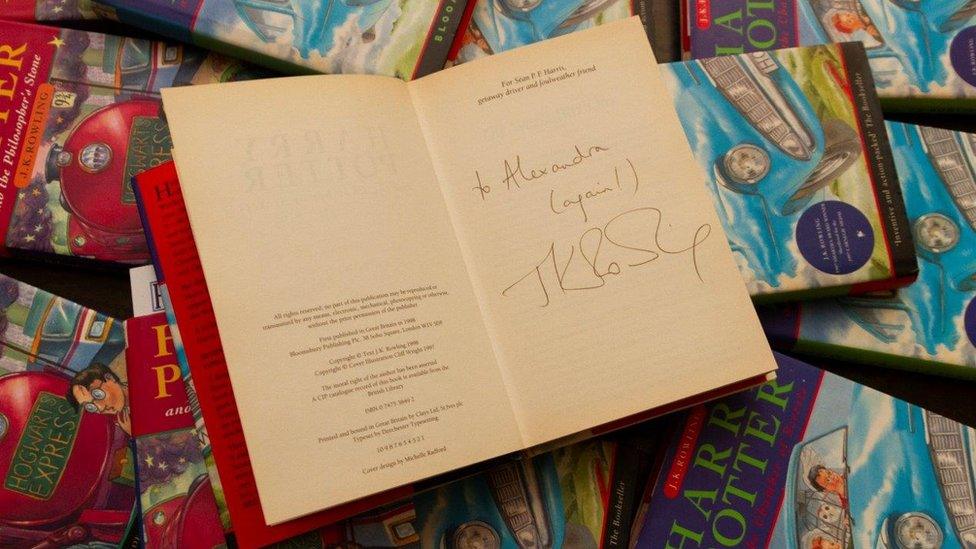
- Published31 July 2019
